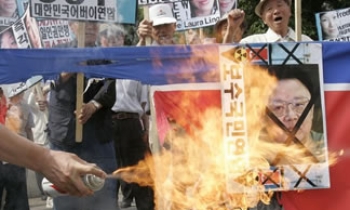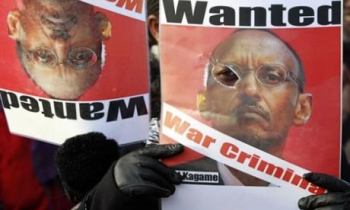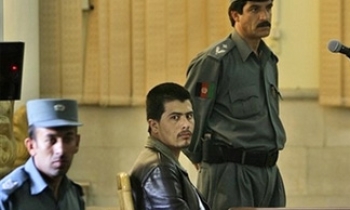I wasn't there, but by most accounts last week's gathering of the nation's newspaper editors in Seattle was a real downer. The talk from the ballroom to the barroom was about the dimly seen future of newspapers. Rosy Scenario was not on the program.
David Shribman, editor of the Pittsburgh Post-Gazette, wrote from Seattle: "Criticized on the left, besieged by the right, squeezed by dropping circulation and revenue, this grim group may be the most deeply depressed (and deeply depressing) subset of professionals in the nation, and their convention one of the biggest downers of the calendar, taking on the gloomy, doomed air of a gathering of blacksmiths exactly a century ago, when Henry Ford's Model N roadster went on sale for $500."
Newspapers do face some tough challenges, but before American editors and reporters start feeling too sorry for themselves, they should consider what their counterparts in foreign countries are facing and the risks they are taking to do their jobs. In many places around the globe, editors worry more about losing their lives than about losing circulation and advertising. Some of them operate on shoestring budgets. They risk everything, not for money or glory, but because they believe what they are doing matters, that it makes a difference. In writing their stories, they sometimes are signing their own death warrants. Yet, they think of themselves as journalists, not as heroes or martyrs.
These days it doesn't take a lot of courage to be an American journalist, unless, of course, you are terrified at the thought of going to jail for refusing to identify your anonymous sources. American reporters are rarely, if ever, kidnapped or murdered here at home. The best of them win prestigious awards for their work and gain some degree of celebrity, not to mention a lucrative book contract. It's a good life.
To appreciate journalistic courage, we have to look abroad where reporters and commentators put their lives on the line covering conflicts or uncovering corruption and crime in countries where editors are jailed and murdered and their newspapers and magazines closed. It's one thing to go after wrongdoing in Washington, but real courage is taking on a drug lord in Colombia.
Wednesday, May 3, is World Press Freedom Day, a time to reflect on the threats to fundamental press freedoms around the world and to recognize those journalists killed in the line of duty. In Washington, Freedom Forum, a press-freedom organization, will add the names of 59 journalists who died covering the news last year to its Journalists Memorial in Freedom Park. According to Freedom Forum, more than 70 journalists have died in Iraq since the war started, making it "a more dangerous conflict for journalists than either World War II, during which 69 journalists died around the world, or the 20-year conflict in Vietnam and Cambodia, where 63 journalists died."
Iraq is a war zone, but it accounts for only 23 of the 59 names that will be added to the memorial this week. Most of the others were murdered for doing what a free press does _ seeking the truth and speaking it to power. Some were taken out by drug cartels, others by political thugs. They were gunned down on the street and in their homes, in their cars and in their offices.
In Mexico, Dolores Guadalupe Garcia Escamilla, a crime reporter in drug-infested Nuevo Laredo, was shot 14 times as she parked her car at the radio station where she worked. The shooting occurred half an hour after she aired a report on the killing of a local lawyer.
In Azerbaijan, the editor of the leading opposition publication, Elmar Huseynov, was gunned down in his apartment building.
In Brazil, Jose Candido Amorim Pinto, a longtime investigative journalist and radio host who often reported on local government corruption, was killed when assailants shot him 20 times and fled on motorcycles.
In the Philippines, Philip Agustin, editor and publisher of a weekly newspaper that focused on local government corruption, was shot in the back of the head as he was preparing to have dinner with his daughter. He was one of six Filipino journalists murdered last year.
The list goes on, year after year, in country after country. Their deaths remind us that a free press is not free. In too many places, it is paid for with the blood of brave journalists. The world should not forget their sacrifice.
(Philip Gailey is editor of editorials for the St. Petersburg Times. E-mail gailey(at)sptimes.com.)









